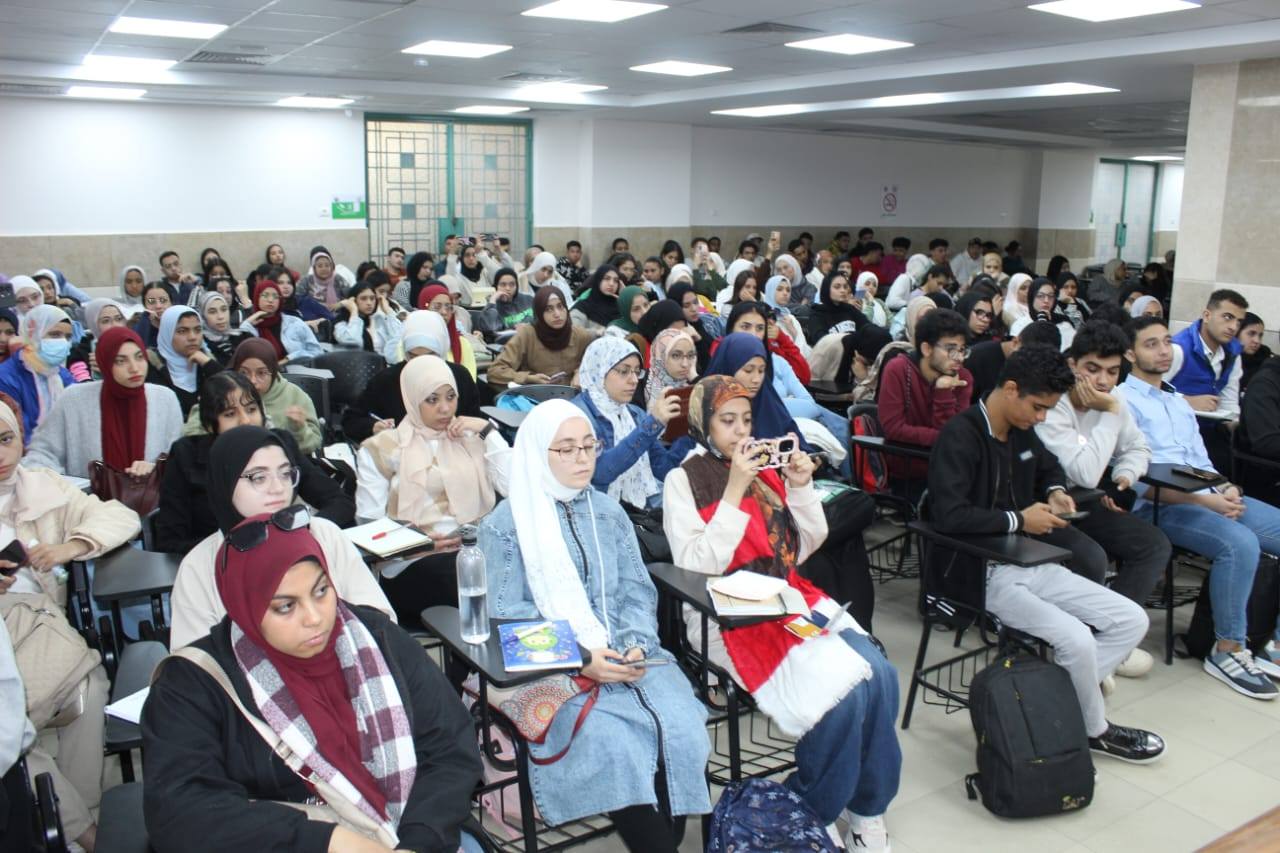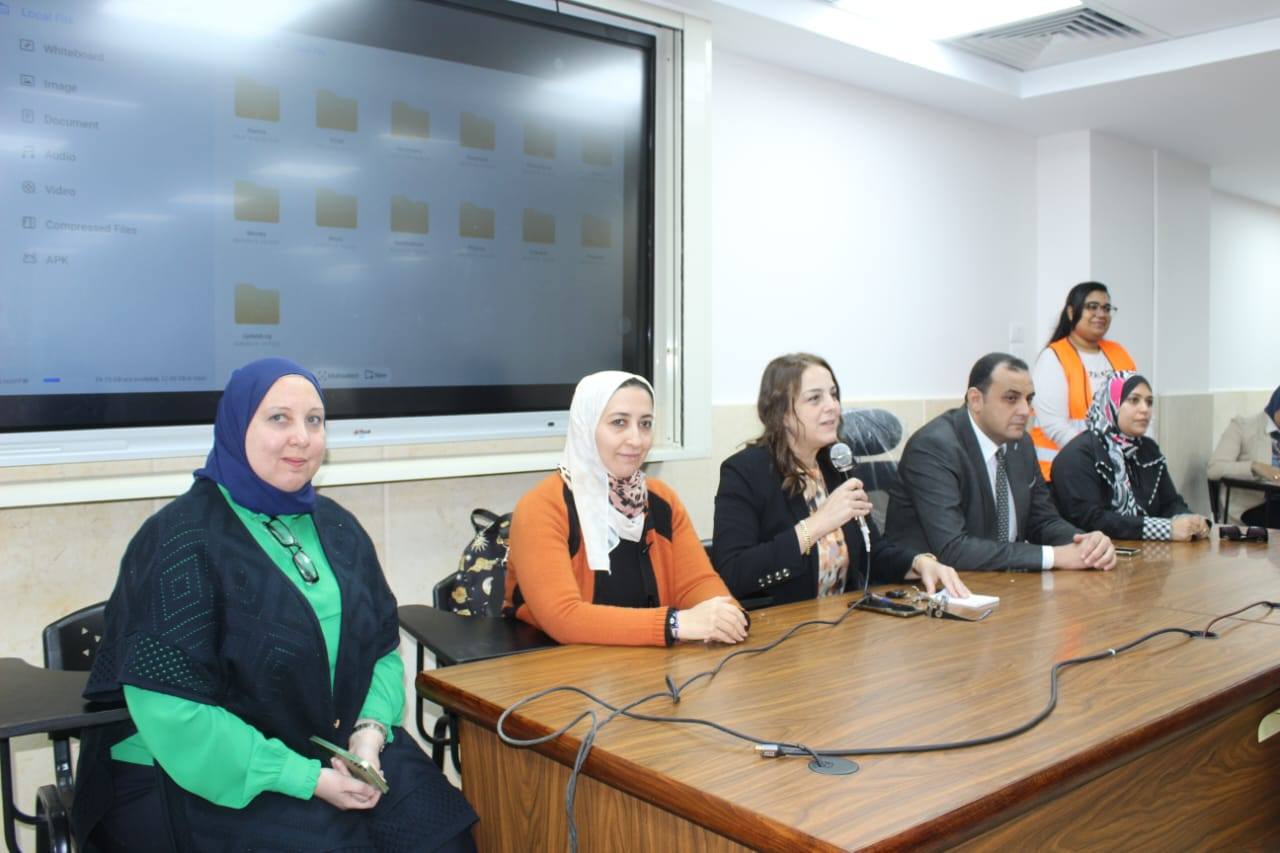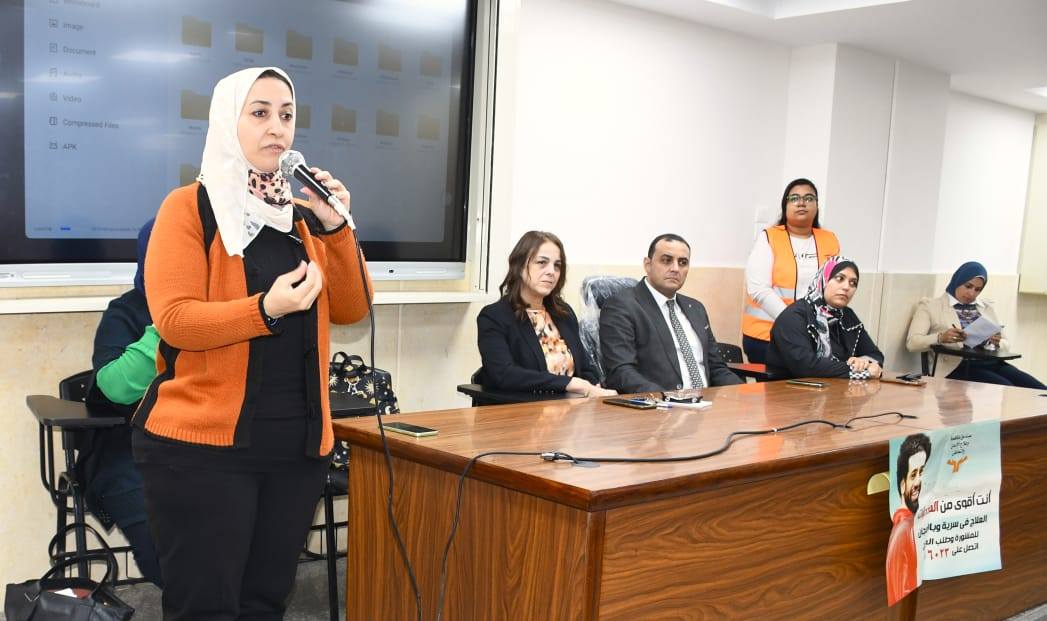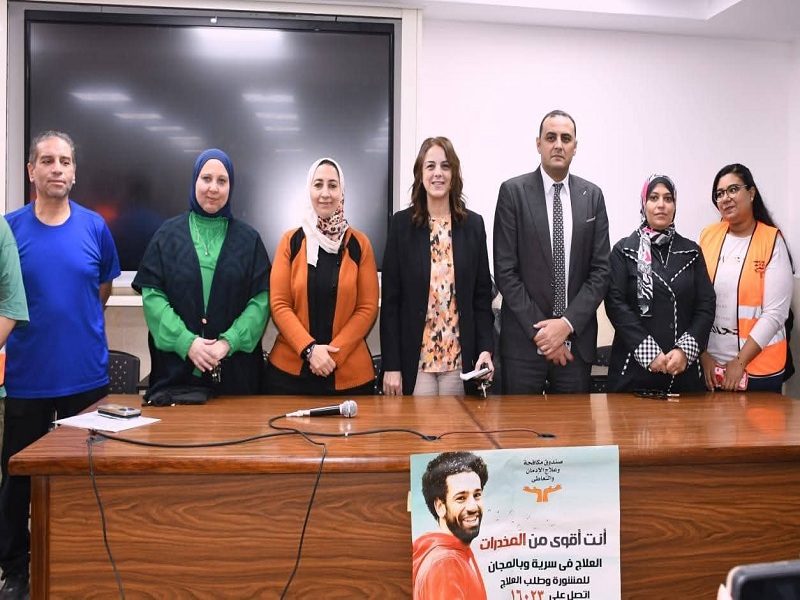The Faculty of Mass Communication hosts an awareness seminar entitled ‘The Social and Legal Dimensions of Narcotic Substances’ to combat addiction”
As part of the awareness seminar series organized by the Education and Student Affairs Sector at Ain Shams University, the Faculty of Mass Communication hosted an educational seminar entitled “The Social and Legal Dimensions of Narcotic Substances”. The event was held under the patronage of Prof. Mohamed Diaa Zain El-Abedeen, President of Ain Shams University, and Prof. Rami Maher Ghali, Vice President for Education and Student Affairs, with the kind hosting of Prof. Heba Shahin, Dean of the Faculty of Mass Communication.
The seminar was administratively supervised by Mr. Ibrahim Said Hamza, Assistant Secretary of the University for the Education and Student Affairs Sector. It was organized by the Education and Student Affairs Sector in cooperation with the General Administration for Student Welfare – Student Unions and Societies Department, the Student Union of the Faculty of Mass Communication, and the National Anti-Addiction and Drug Treatment Fund under the Prime Minister’s Office.
 |
 |
 |
||
In her opening speech, Prof. Heba Shahin emphasized that youth are the true wealth of the nation, stressing the importance of maintaining mental and physical health as the foundation for a stable and secure future. She highlighted the faculty’s commitment to raising students’ awareness of the social and legal dimensions of drug issues and warned of the dangers of addiction and its destructive effects on individuals and society. She also noted that the university seeks to promote a culture of healthy lifestyles among students and that awareness seminars support national efforts to combat addiction and foster societal awareness.
Prof. Shahin added that the faculty prioritizes hosting events that prepare Mass Communication students professionally and academically, equipping them with the skills to address societal issues and providing meaningful media content that reflects the role of media professionals in awareness-building and developing professional character.
During the seminar, Dr. Rasha Mohamed Rashad, Coordinator and Researcher for Preventive Programs at the Anti-Addiction Fund, reviewed state efforts to reduce the demand for drugs as a commodity. She highlighted preventive programs for university and school students, as well as training courses aimed at raising awareness of the health and behavioral risks of drugs. She also addressed the role of media in countering harmful messages promoted by some artistic works and emphasized the importance of presenting content that reinforces values of awareness and responsibility.
Dr. Rashad warned of the dangers of curiosity and the desire to experiment, noting these as primary pathways to addiction among youth. She emphasized that the increasing availability of drugs in recent years represents a major challenge, necessitating greater individual awareness of their dangers. She explained that reducing demand starts with personal awareness and understanding of the risks of addiction.
She provided a detailed explanation of the types of narcotic substances and their physical and psychological effects and addressed misconceptions about drug use, such as the belief that drugs help escape problems or improve performance. Behavioral indicators of drug use were highlighted, and parents and friends were urged to intervene early to protect their children. She stressed the importance of psychological rehabilitation as part of the treatment journey and noted that the fund provides free and confidential counseling and treatment services 24/7 through the hotline 16023.
Meanwhile, Dr. Badr Abdel Aziz, Director General of Legal Affairs at the Anti-Addiction Fund, explained the Anti-Drug Law, reviewing punishable offenses such as being present in areas designated for drug use, accidental possession, or providing spaces for consumption. He emphasized the importance of students’ awareness of legal dimensions and stressed that media plays a key role in educating the public about addiction risks through various platforms and methods.
He also addressed the recent increase in the number of addicts and the infiltration of new groups, including women, warning against weak willpower that drives addicts to seek drugs regardless of health and social consequences. He pointed out that drugs are a primary cause of many crimes and accidents and reviewed the major health risks faced by addicts.
The seminar featured the screening of the dramatic film “4×6”, which realistically illustrates the dangers of addiction to raise student awareness.
At the conclusion of the event, a Q&A session was held, allowing students to ask questions and receive answers from the specialists.


.svg)

